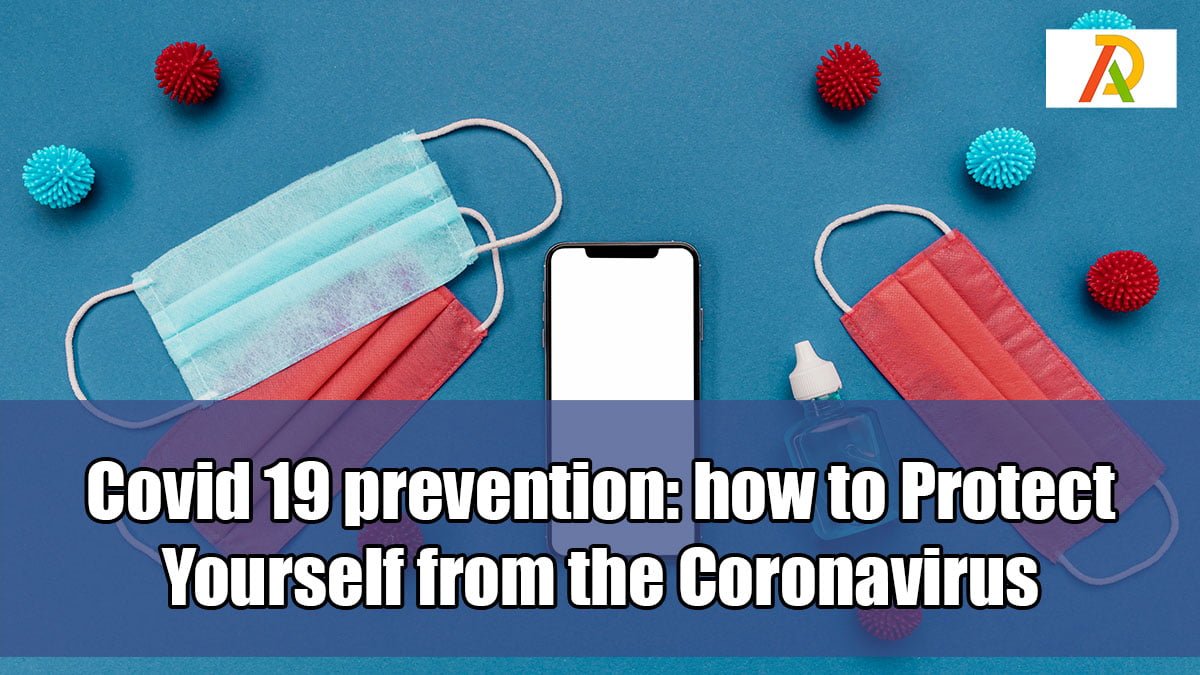Covid 19 prevention: How to Protect Yourself from the Coronavirus

In the face of Covid 19 prevention is not enough; rather, staying informed about the latest developments on protecting yourself from the virus is important. As the pandemic continues to spread, it is more important now than ever to be aware of the necessary precautions that you should take to stay safe and healthy. This blog post will explore some of the most effective methods for preventing Covid 19 infection, from using protective masks and hand sanitizer to avoiding large crowds and washing your hands regularly. We will also discuss how to recognize symptoms of infection and the steps you can take if you become sick.
What is Covid 19?
Covid 19 is a novel coronavirus that was first identified in 2019. It is similar to other coronaviruses, such as SARS-CoV and MERS-CoV, but it is more severe and spreads more easily from person to person. As of June 2019, there have been over 400 confirmed cases of Covid 19, including several deaths. Most cases have been reported in China, but the virus has also been detected in other countries, such as the United States, Australia, and Canada.
There is no vaccine or specific treatment for Covid 19. However, the virus can be prevented by taking simple precautions, such as washing your hands often and avoiding close contact with people who are sick. If you become infected with the virus, it is important to seek medical attention early and take measures to prevent spreading the disease to others.
The best way to protect yourself from Covid 19 is to practice good hygiene and avoid close contact with people who are sick. Here are some tips on how to do this:
-Wash your hands often with soap and water for at least 20 seconds. -Avoid touching your eyes, nose, or mouth with unwashed hands. -Avoid close contact with people who are sick. -If you must go out in public, wear a face mask to protect yourself from respiratory droplets that could contain the virus. -Stay home if you are sick and avoid contact with others. –
What are the symptoms of Covid 19?
Covid-19 is a novel coronavirus that was first identified in 2019. The symptoms of Covid-19 are similar to those of other respiratory illnesses, such as the flu, and can range from mild to severe. Common symptoms include fever, coughing, and difficulty breathing. More severe cases may lead to pneumonia, which can be fatal. Early diagnosis and treatment of Covid-19 are critical to preventing serious illness or death. If you think you may have been exposed to the virus, contact your healthcare provider immediately.
How is Covid 19 spread?
Covid-19 is a respiratory illness caused by a novel coronavirus. An infected person spreads the virus through contact with respiratory secretions, such as saliva, mucus, or blood. It can also be spread through contact with objects or surfaces contaminated with the virus. The virus is thought to cause severe respiratory illness in people of all ages and can be fatal in some cases. There is currently no vaccine or treatment for Covid-19.
The best way to protect yourself from Covid-19 is to avoid exposure to the virus. This means avoiding close contact with people who are sick and taking steps to clean and disinfect surfaces that may be contaminated with the virus. You should also wash your hands often, using soap and water for at least 20 seconds. You can use an alcohol-based hand sanitizer if soap and water are unavailable.
Who is at risk for Covid 19?
Covid-19 is a novel coronavirus that was first identified in 2019. It is similar to SARS-CoV, the virus that caused the 2002-2004 SARS pandemic. as of June 2019, only a limited number of cases have been identified in people in the Middle East, all of whom have since recovered. However, the World Health Organization has declared Covid-19 a global health emergency due to its potential to cause a worldwide outbreak.
Covid-19 is thought to spread primarily through contact with an infected person’s respiratory secretions, such as saliva or mucus. It may also be spread through contact with objects or surfaces contaminated with the virus. The incubation period (the time from exposure to symptom onset) for Covid-19 is thought to be between 2 and 14 days.
Covid-19 can infect people of all ages, but children and young adults seem at lower risk for severe illness. Adults over 60 and people with underlying medical conditions, such as heart, diabetes, and lung disease, are at higher risk for severe illness from Covid-19.
What can you do to prevent Covid 19?
You can do several things to protect yourself from the coronavirus or COVID-19:
- Wash your hands often with soap and water for at least 20 seconds, or use an alcohol-based hand sanitizer.
- Avoid close contact with people who are sick.
- Stay home as much as possible and avoid non-essential travel.
- Cover your mouth and nose with a mask when around others.
- Clean and disinfect surfaces that are frequently touched.
- Monitor your symptoms and seek medical attention if you develop respiratory symptoms like a cough or difficulty breathing.
When should you see a doctor for Covid 19?
If you are experiencing any of the following symptoms, it is recommended that you see a doctor:
- Fever
- Coughing
- Shortness of breath
- Fatigue
- Loss of appetite
- Muscle pain
- Headache
- Sore throat
- Chills or repeated shaking with chills
- Loss of taste or smell
If you have these symptoms, you must call your doctor or healthcare provider and tell them about your symptoms and exposures. They will give you instructions on what to do next.
Conclusion
As the Covid-19 pandemic continues to affect us all, it is important to remain vigilant and take steps to protect yourself from contracting the virus. With a few simple precautions, such as wearing a mask, avoiding large gatherings, and washing your hands frequently, you can help reduce your risk of exposure. Following these tips can ensure that you stay safe and healthy during this challenging time.


